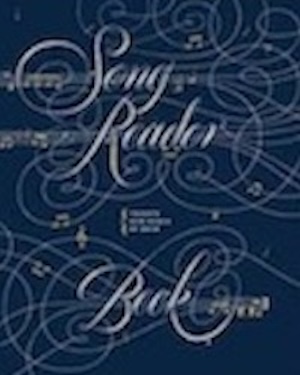
No one had ever heard of Beck David Hansen. Now known monomously as “Beck”, he a completely unknown music artist playing in small coffee houses. And yet, somehow his very first recorded song “Loser”, strange song with incoherent lyrics played only on an obscure local radio station, was inexplicable success. One would think “Loser” was worthy of the “Most Stupid Song Award.” But, “Loser” was inexplicably brilliant.
The song “Loser” skyrocketed to #1 on Billboard’s Alternative Airplay. Why? Because the song was basically a musical blank canvas on which listeners could paint their own meaning to Beck’s words. They could give Beck’s song an individual resonance created by everyone else but him. Hence, “Loser” belonged collectively to them. Funnily enough, it was never Beck’s intent for “Loser” to take on a multi-dimensional life of its own. But the phenomenon did give Beck an idea for what critics deemed a “sure flop” album. It was called “Song Reader” and contained 20 songs of just sheet music. Eyup, an album with no music. Just sheets of Beck’s lyrics. Once again Beck floored the music world. Except this time, it was a calculated creation that allowed people to compose their own music that accompanied Beck’s lyrics and then share it on social media.
Within just the first month of Song Reader’s release, 32,000 people generated self-recorded videos of themselves singing and playing their renditions of Beck’s sheet music to share on YouTube. What’s remarkable about the idea behind Song Reader isn’t about sheet music. It was about releasing his work into wild and giving people unfettered creative free rein to musically interpret Song Reader’s lyrics any way in which they were inspired.

After Song Reader’s release, Beck just sat back and watched the magic unfold. Nearly 3 years went by and people were still recording, posting, and sharing their compositions. In addition, they were also listening to and being inspired by the musical versions of others. Famous artists like Norah Jones, Jeff Tweedy, and Jack Black got onstage and played their own takes on Beck’s sheet music. Even the Portland Cello Project recorded their own version of all 20 sheet music songs called “Portland Cello Project Play Beck Hansen’s Song Reader”.
By letting people take over his songs, Beck’s sheet music continued to stay relevant because the music evolved and grew along with the culture.
The same goes for brands.
Take a page out of Beck Hansen’s Sheet Music Playbook. Give brand fans the freedom to interpret your brand according to the way the see and experience it. Let them own it. Flip the conventional thinking of “Follow me” to “Follow them”.
Let brand fans lead the way and who knows? Maybe they will take your brand on an adventure into a new, expansive and fertile territory of what was a previously unknown transformational opportunity .
